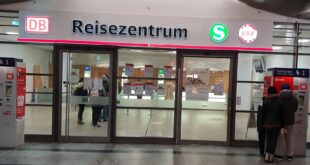A number of new laws and regulations – affecting online banking and payment for online transactions, appointments at the doctor’s and insurance coverage for HIV prophylaxis drugs, allowances for asylum-seekers and the cost of sending packets etc – enter into effect in the new month. The most important changes are in this overview.
HEALTH
New incentives for quicker appointments for patients
In order for statutory health insurance patients (Kassenpatienten) to get quicker appointments at the doctor’s, new financial incentives and regulations for doctors take effect from September. Certain categories of physicians, such as ophthalmologists, gynaecologists and ear, nose and throat doctors, must reserve at least five hours a week as open consultation time for patients without prior appointments.
Specifically, family doctors are to receive a bonus of ten euros from 1 September 2019, if they recommend a patient, with a need for urgent treatment, to a specialist and secure the appointment within four days. In the future, there will also be extra compensation for doctors if their clinics take in patients who have never been with them for at least two years.
HIV prophylaxis for statutory health insurance patients
The prophylaxis drugs against the AIDS-causing HIV virus will be paid for henceforth by all statutory health insurance companies (gesetzliche Krankenkassen). According to the health insurance company DAK-Gesundheit, the new preventive drug therapy can prevent HIV infection with 96% certainty. Experts hope that “PrEP” (pre-exposure prophylaxis) significantly reduces the number of new infections. In the past year alone, about 2,900 people in Germany were infected with the HIV virus.
ASYLUM & MIGRATION
Less money for asylum-seekers
Since 1 September, cash benefits for asylum seekers have been cut as a result of changes in the Asylum Seekers Benefits Act (Asylbewerberleistungsgesetz).
- Single persons and single parents who do not live in a collective housing facility now receive 344 instead of 354 euros per month.
- Couples living in an apartment or shared accommodation receive 310 euros (instead of 318 euros).
- For adults under the age of 25, who still live in their parents’ household, the allowance drops from 284 to 275 euros. The same applies to adults who live in a stationary facility.
- For underage asylum-seekers, the rule changes as follows:
– Teenagers (14 to 17 years): 275 instead of 276 euros
– Children (6 to 13 years): 268 instead of 242 euros (plus 26 euros)
– Children (up to 5 years): unchanged at 214 euros
- Asylum-seekers and tolerated persons who are in vocational training or studying can receive benefits under the Asylum Seekers Benefits Act from September 2019 after the 15th month of residence in Germany
FINANCE
Two-Factor Authentification in Online Transaction
From 14 September, the new EU’s Payment Services Directive “PSD2” comes into force to make online banking safer in member states.
Henceforth, you will have to identify yourself in two different ways to complete an online purchase or bank transaction.
The two-factor identification basically means having a customer to identify themselves with two different factors of identity.
To make a payment by online bank transfer, in addition to the user ID (the account number and the password), the bank customer must enter henceforth a TAN immediately generated for the transaction by SMS, bank app or TAN generator. Alternatively, the fingerprint on the phone can be used. The old paper TAN lists (iTAN) issued by German banks will finally be abolished and replaced with this two-factor authentication.
Although the two-factor authentication for online bank transfers is already the norm. What is new, however, is that from 14 September customers will have to identify themselves with the two-factor authentication when they log in on their bank’s online platform. “If you want to log into your bank account online in the future, you will not only need username and password or account number and PIN, but you will also have to confirm your identity with a security procedure in a further step,” said Postbank.
Another innovation: the new EU directive will allow third-party providers to access your account, if you have previously agreed to this.
Moreover, for payment by credit card, the entry of the verification or security number of the credit card as identification is no longer sufficient for a transaction.
For example, when shopping online with a credit card, the credit card number, the card’s expiry date and the three-digit check (or security) code will no longer be sufficient to carry out the transaction. A further authentication via a code (TAN) that is generated by a bank app or comes as an SMS on the Smartphone (mobile TAN or photo TAN) will be required.
Exceptions may apply for small transfers of up to 30 euros.
OTHERS
DHL demands from business customers toll surcharge
The parcel service of Deutsche Post, DHL, has increased its list prices for business customers on 1 September. As DHL stated in a press release, a toll surcharge of ten cents per package is now charged.
Munich lowers Kita fees
The City of Munich on 1 September lowered the Kita (kindergarten) fees for municipal facilities as well as those of non-profit and other institutions participating in the Munich Support Formula.
There’re no more charges for a kindergarten place for 3 to 6 years’ kids – irrespective of the income of the parents and the care time. For a nursery place for kids from 0 to 3 years, you will not pay until you have a household income of more than 50,000 euros. The same applies to a place in the day care centre for school children from 6 years.
Femi Awoniyi
READ ALSO New EU regulation on online banking & e-payment goes into effect
 THE AFRICAN COURIER. Reporting Africa and its Diaspora! The African Courier is an international magazine published in Germany to report on Africa and the Diaspora African experience. The first issue of the bimonthly magazine appeared on the newsstands on 15 February 1998. The African Courier is a communication forum for European-African political, economic and cultural exchanges, and a voice for Africa in Europe.
THE AFRICAN COURIER. Reporting Africa and its Diaspora! The African Courier is an international magazine published in Germany to report on Africa and the Diaspora African experience. The first issue of the bimonthly magazine appeared on the newsstands on 15 February 1998. The African Courier is a communication forum for European-African political, economic and cultural exchanges, and a voice for Africa in Europe.


































